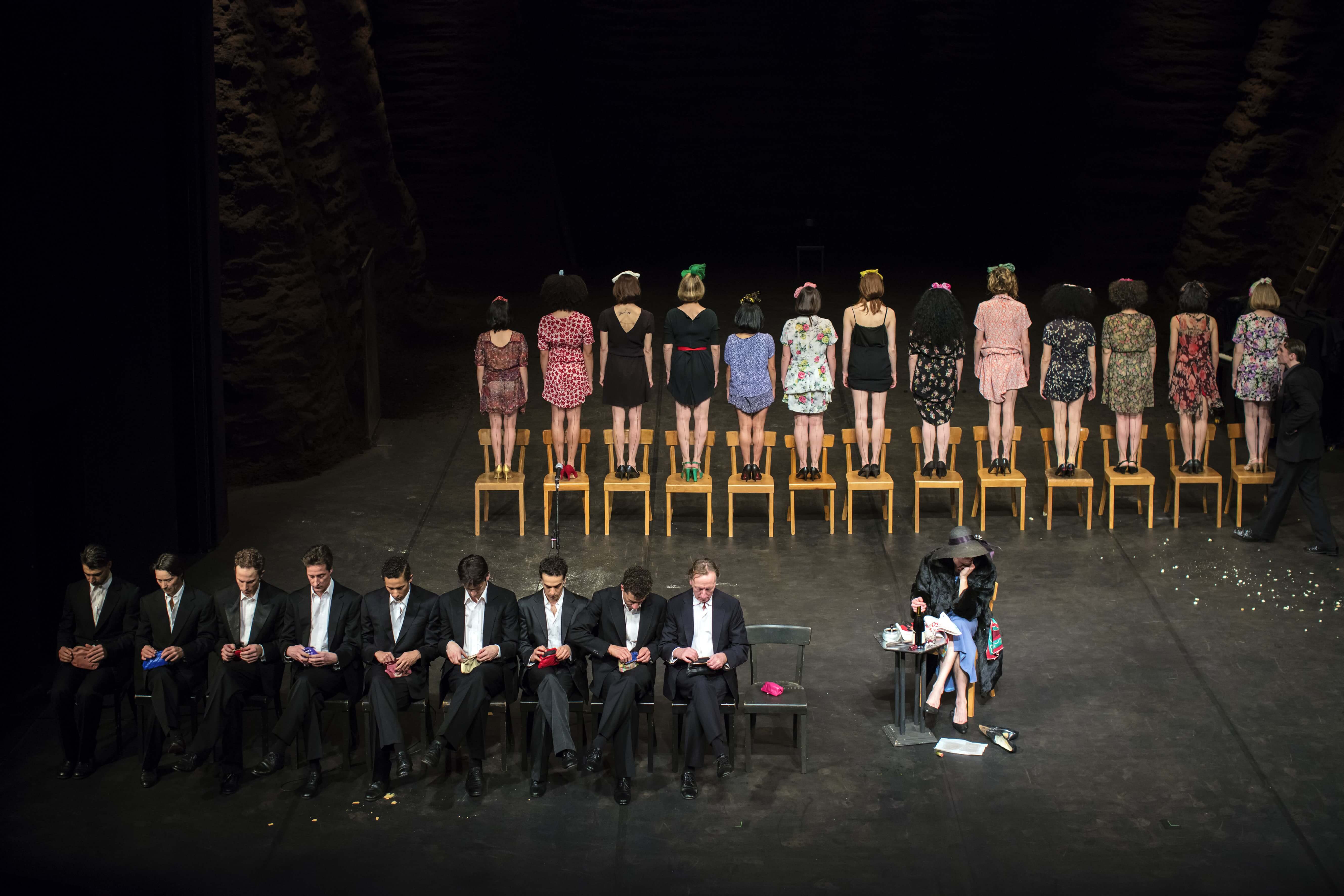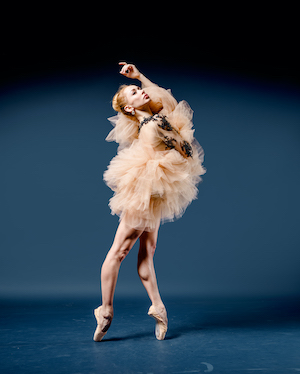Viktor is a surreal journey that takes you all the way through a dense experience of desire, emotions and human relations. Spanning themes of love and death, the work is extremely raw and infused with elements of humour and absurdity.
Developed in 1986, while Bausch and her company were on a residence in Rome, Viktor marks the beginning of a long series of city-inspired pieces.
In front of us, a dark stage contoured with high barriers of earth – a rather distressing and bleak vision of a world down below, or maybe a grave. From the top, a gravedigger shovels all the time; soil continuously crumbles down the walls partly covering the stage, as to put a layer over the lost souls on scene. The ambiguity of some images or actions recurs frequently throughout the whole performance.
A woman in a red dress walks in, welcoming the audience with a confident smile, it looks like she’s without arms, and from this point a long series of vignettes unfolds. There isn’t a particular storyline to follow, making quite difficult sometimes to remain focused throughout the excessively long show (over 3 hours). But this is what makes Pina Bausch’s works exceptional and intriguing. Instead of looking for a logical sequence, you should just let yourself be transported by this flow of images and be thrown into an unconventional and sometimes exaggerated representation of reality, which on a closer analysis is not that absurd at all.

© Meyer Originals
The atmosphere is filled with hilarious and bleak instants, at times chaotic and brutal, or just bizarre. A woman is rolled in a carpet while a couple of corpses are joined in a marriage and forced to kiss. A comical auction takes place with random objects and antiques, even dogs, parading through the stage. Sublime graceful episodes of couples dancing in a long line or together in a ballroom sometimes replace the baffled reality. It then gets to one of the most extreme moments when a dancer shoves veal cutlets into her pointes to perform a short classical phrase. Towards the end of the first act, women standing on chairs lift their skirts and take part to as sort of beauty contest, while men aligned at the front keep busy doing their makeup.
It’s very much acting and little dance. They run after each other, collide, fight and flirt, and the overall result is breath-taking, as all performers have this unique ability to trigger a laugh from simple and repetitive actions. The eclectic music score, comprising songs from different cultures and eras (folk songs, ballads, waltzes and dance music), is tremendously powerful in transporting the audience into unusual times and places.

© Klaus Dilge
The connection with Rome is more visible in the second act, in particular with the elders gathering in a circle to drink wine together, the three idle waitresses not so welcoming with their customer, and also through the recurring use of two cobblestones, sometimes employed as lenses or heels, or just passed on to the audience. Another transition sees a woman forced to drink water and then spit it out like a fountain. Most sublime of all, is the section when dancers swing to and fro while hanging on gymnastic rings, like they were flying. It’s a moment of immense beauty.
Pina Bausch’s way of create works usually starts with giving questions or prompts to the dancers and use their personal response to build the piece. Every work is then the result of each performer’s personal images. Viktor shows a universal picture of all humans in all cities. Ending as it started, it reaffirms the continuity of human relationships, and the ability of Pina to put you in front of a mirror and make you feel alive.
Reviewed at Sadler’s Wells on 8th February




